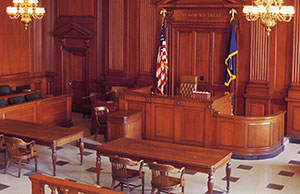Commission Releases ‘Dos and Don’ts’ Guide for Working with Opposing Counsel

The Ohio Supreme Court Commission on Professionalism released today a suggested guideline about interacting with opposing counsel.

The Ohio Supreme Court Commission on Professionalism released today a suggested guideline about interacting with opposing counsel.
The Supreme Court of Ohio Commission on Professionalism has released the third of a series of best practices publications titled Professionalism Dos and Don’ts. The series of Dos and Don’ts include suggested guidelines on attorney conduct. Today the commission released the Professionalism Dos and Don’ts: Working with Opposing Counsel and Other Lawyers, which recommends guidelines for lawyers in their day-to-day interactions with other attorneys.
The commission hopes to promote professionalism among Ohio’s lawyers with these guides but does not regulate attorney conduct or affect attorney discipline. Commission on Professionalism Secretary Lori Keating said the publications will help practicing attorneys, judges, and law school students.
“Attorneys pledge to offer fairness, integrity, and civility to opposing parties and their counsel under ‘A Lawyer’s Creed,’ which was issued by the Ohio Supreme Court in 1997,” Keating said. “All attorneys should practice this oath daily to elevate their professionalism, and the Dos and Don’ts list demonstrates ways attorneys can honor this oath in their practice.”
Some of the Dos in working with opposing counsel and other lawyers include avoiding motions about minor issues that should be worked out informally, consulting other attorneys in advance to avoid scheduling conflicts, identifying changes made from previous drafts when exchanging document drafts, and promptly notifying other counsel when hearings, depositions, or conferences are cancelled or postponed.
Some of the Don’ts in working with opposing counsel and other lawyers include responding in kind when confronted with unprofessional behavior by another attorney, serving papers at a time or in a manner intended to inconvenience or take advantage of opposing counsel, and using discovery as a means of harassment.
Keating said the series of practices will be incorporated into professionalism CLEs, distributed by judges to practitioners who come before them, and taught to law school students.
View the complete list of Professionalism Dos and Don’ts: Working with Opposing Counsel and Other Lawyers.
Acrobat Reader is a trademark of Adobe Systems Incorporated.


